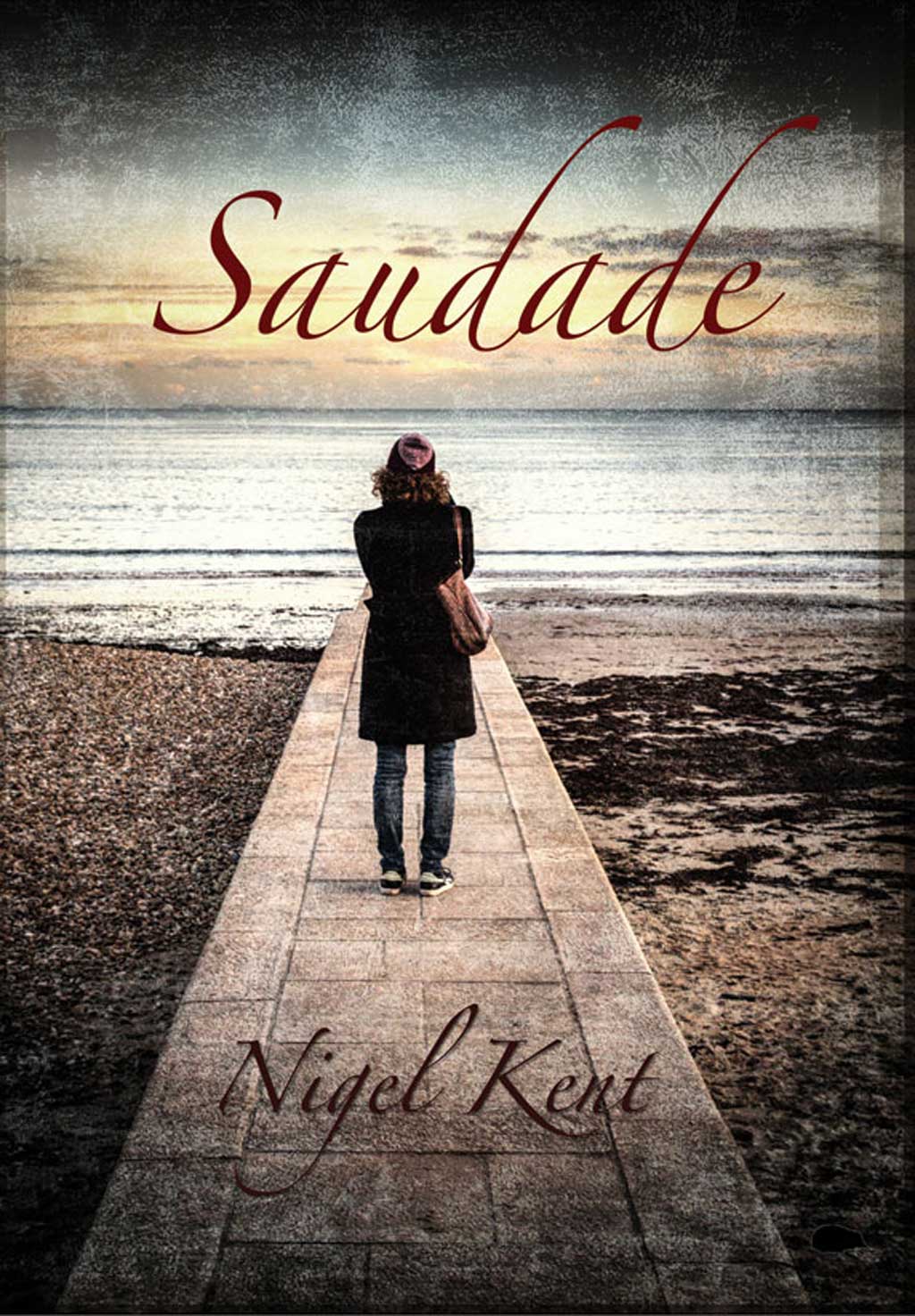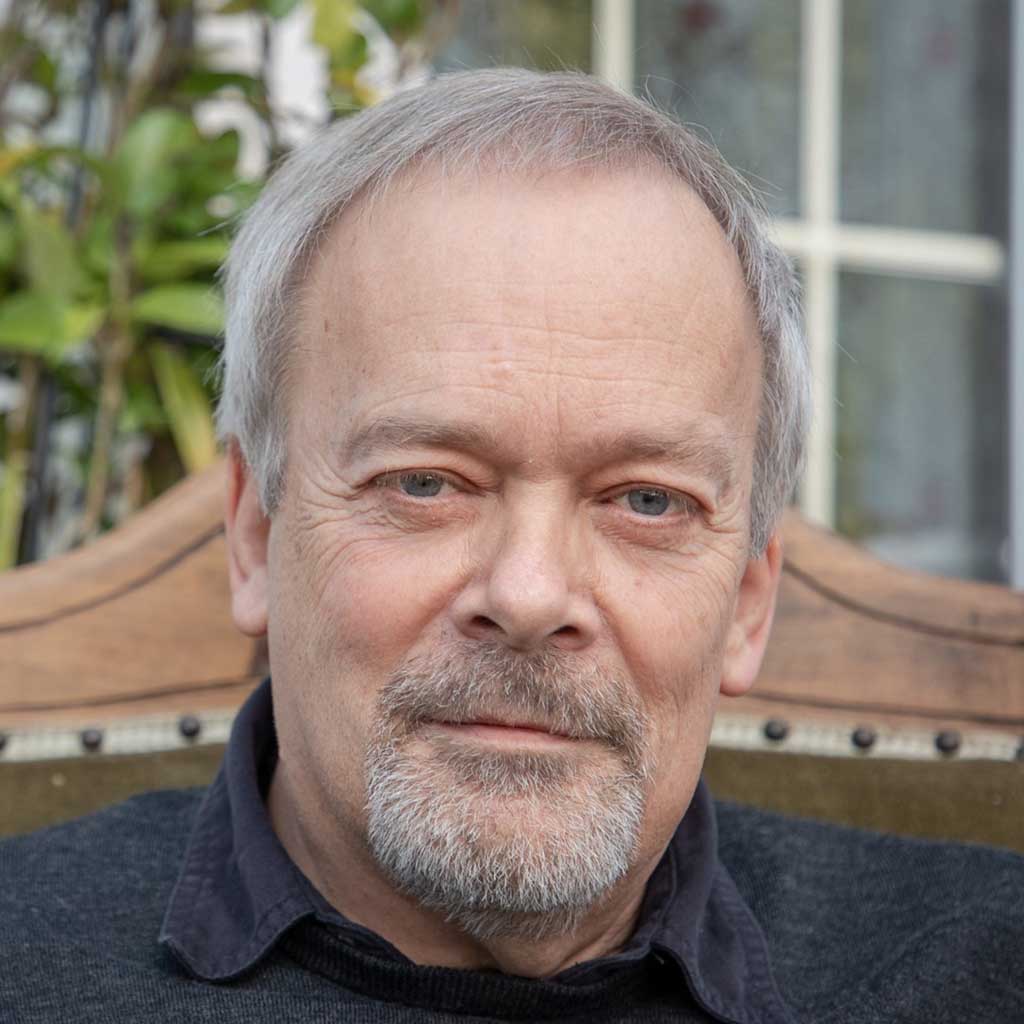 Nigel Kent is a poet living in rural Worcestershire who has been shortlisted for several national competitions, and nominated for the Pushcart Prize. His poetry has been published by Hedgehog Poetry Press, Dempsey and Windle, Paper Swan Press, Emma’s Attic Publishing, the Poetry Society of the Open University, Fly on the Wall Poetry Press and Eye Flash Poetry. His Poetry Conversation pamphlet, A Hostile Environment, written in collaboration with Sarah Thomson, was published by Hedgehog Poetry Press in January 2019, and a second conversation, Thinking You Home in June 2019. His first collection, Saudade, was also published in 2019, and a new pamphlet, Psychopathogen, is due out on the 1st August 2020.
Nigel Kent is a poet living in rural Worcestershire who has been shortlisted for several national competitions, and nominated for the Pushcart Prize. His poetry has been published by Hedgehog Poetry Press, Dempsey and Windle, Paper Swan Press, Emma’s Attic Publishing, the Poetry Society of the Open University, Fly on the Wall Poetry Press and Eye Flash Poetry. His Poetry Conversation pamphlet, A Hostile Environment, written in collaboration with Sarah Thomson, was published by Hedgehog Poetry Press in January 2019, and a second conversation, Thinking You Home in June 2019. His first collection, Saudade, was also published in 2019, and a new pamphlet, Psychopathogen, is due out on the 1st August 2020.
Nigel’s poetry is deeply-felt and accessible, rooted in the real world, in the experiences and inner lives of ordinary people, their family-relationships, their failings, their despair and their hopes.
In the early summer of 2020, with the country under lockdown, Suz Winspear – former Worcestershire Poet Laureate and SlapMag’s monthly Spoken Word feature-writer – had a online conversation with Nigel, about his remarkable collections of poetry.
Suz Winspear A theme that stood out for me in Saudade was that of children and families. There are recurrent images of children deserted by parents, not understood and not understanding, the frustrations and sadnesses of the parent and child relationship. The poem Man-Made was fascinating, with the total inability of both father and son to communicate, or to appreciate the things that the other loves. And I found Breakfast Scene utterly heartbreaking – I really felt for that little girl who’s the collateral damage in her parents’ argument. Yet I also see moments of immense tenderness between parents and children; the father in Casting Off, and the mother in Normal. So perhaps you would like to begin by saying a few things about families, relationships and the experiences of children and parents?
Nigel Kent Before retirement I worked in education. I saw at first-hand the effects of the relationships between parents and their children and this has stayed with me. I saw so many children whose lives were unconsciously blighted by the actions of their parents. I think of the poems in the collection explore the significance of this relationship: its value, the difficulty of doing the right thing, and the damage when things go wrong. For example, the title poems, Saudade I and Saudade II, examine marital breakdown from the child’s perspective and from the parents’ perspective. The word ‘Saudade’ is a Portuguese and Galician word for which there is no English equivalent. It captures the feeling of loss and emptiness that comes from remembering the joys and pleasure one once experienced. Both the child and the parent in the poem share that feeling and it haunts them long after the event. In doing so, both these poems seek to capture the paradox of parenting: its capacity for both for fulfilment and for suffering.
SW Those poems are so poignant! Some of your poems are inspired by other works of art – the three prose-poems with titles from Dickens were particularly striking. Could you talk about those? They seem to be drawing a connection between Dickens’ world and the social conditions of his day, and our own.
NK Yes, the three prose poems are from a larger sequence of poems that I wrote on austerity Britain. I like to think that a key function of art is to comment on the world around us and help influence the way the reader sees reality: art that makes a difference. Consequently, I admire the way in which Dickens shaped social opinion and became a force for change. The three prose poems have as titles quotations from Dickens’ writing because I wanted to draw parallels between poverty in Victorian England and austerity in contemporary society. They all seek to counter the political narrative of ‘the undeserving poor’: the idea that poverty is in some way a consequence of choice or weakness. The idea that underpins all three poems is that of the powerlessness of the poor: in the inability of the zero hours employee to resist the sexual advances of her employer; in the failure of the ex-soldier to find a way off the streets; and in the impotent rage of the little boy.
SW That leads in to the next theme in your poetry – the forgotten people. I’m thinking about the homeless people in The Blind Magi, unseen by the middle class folks who are so busy preparing for Christmas that they miss the meaning of it, the homeless man in Sleight of Hand tormented by the rich boy burning the £50 note, the elderly people in Home Truths and Audrey ‘ s Time. These are all people who appear to be unwanted in the world, again the most powerless . . . Could you say a few words about these?
NK I grew up on a council estate. When I studied ‘A’ level English and read English Literature at university one of the things that struck me was that the authors of the classics didn’t seem interested in the lives of people with a background like mine. If we did feature in their stories, we were present only in the background to help move the plot on or for comic effect. In the 50s and 60s things changed with writers like Alan Sillitoe, John Osborne and Arnold Wesker. However, this has stayed with me and clearly informs my writing. My poems explore the lives of ordinary people: the bright boy from the council estate, the rough sleeper, the residents of a care home, the NHS patient. I’d like to think they’re in the new tradition that provides a mouthpiece for the unheard.
SW Saudade also contains poems inspired by the visual arts – Paula Rego, Edvard Munch, Georgia O’Keefe, Walter Sickert and Roy Lichtenstein. They’re fascinating – they really catch the feeling of those artists ‘ work and style – and they also give voice to the people in the paintings, and tell something of their stories.
NK The ekphrastic poems in the collection are from a larger piece of mine called ‘Whispers in the Gallery’ that I haven’t yet finished.
I’ve always been interested in the visual arts, particularly those that imply a narrative. I think my favourite artist is Paula Rego for this reason and for the fact that her paintings are an example of art that makes a difference. Her Abortion Series (1988), which pictured the dangers of illegal abortion, is credited with shaping public opinion on abortion legislation in Portugal! It’s wonderful to think that the paintings can have this impact on people’s lives.
The five poems in Saudade are my imaginings of the stories being enacted, as if the paintings were a single frame in a storyboard. I have no idea if the ideas and feelings the poems convey are in line with the artists’ intentions or not; that wasn’t important to me. The poems are my personal responses and all five explore dysfunctional relationships: The Rose Shoe and Red Canna explore the sexual objectification of women; The Maids, the psychological consequences of abuse; In the Car, misogyny; and Separation the effects of the loss of a loved one.
SW You have also written two collaborations – Thinking You Home and A Hostile Environment – poetry conversations with Sarah Thomson. First of all, what was the process of writing them? I notice that it isn’t said who wrote which poem. Was there a reason for that? I like the way the two voices work together and respond to the other’s poetry, and the way themes and recurrent imagery builds up – such as the theme of clothes in Thinking You Home. Was that deliberately planned or did it evolve more organically?
NK Sarah Thomson, a poet living in Bristol, and I were commissioned by Mark Davidson, Editor of Hedgehog Poetry Press, to write a poetry conversation on the strength of our entries into a competition for inclusion in the anthology Road to Clifton Pier. We had never met and in fact didn’t meet until after the two conversations were published. Consequently our collaboration was conducted purely via email.
We had no idea what a ‘poetry conversation’ involved so we made up some ground rules before we started. Clearly a conversation consists of an initiation of a subject and a response. Starting a conversation was easy but how were we to respond? We explored several possibilities: we could write in a similar form or on a similar theme; we could take a striking line or image from the poem and write to it; we could write a poem from a complementary perspective.
On the whole we wrote to the same theme from different perspectives, sometimes working with an image or a line for our respondent’s poem as a stimulus. We conducted two conversation simultaneously: one initiated by me and one by Sarah.
As the title suggests A Hostile Environment explores the effects of Government immigration policy on members of the Windrush generation. Thinking you Home was our response to an article on quantum entanglement which Sarah had read, which suggests that once entangled, particles remain connected, however far apart: a kind of ‘particle telepathy’. This raised interesting issues for us about our connections with loved ones, particularly after they’ve gone.
The conversations proved very different in nature. A Hostile Environment remained tightly focussed on the theme. Thinking you Home, however, as is the nature of some conversations, proved wider ranging.
Writing collaboratively like this was a fascinating experience. Not only did we benefit from the feedback we gave on each other’s work, it provided a unique insight into how another writer realises intentions through form and style. I recommend it!
Both these conversations were published in 2019 and we have performed them in a number of venues.
The decision not to attribute the poems to a specific writer was an editorial decision by Mark. I guess one effect of this is to see the collection as a whole rather than as a series of separate pieces. It invites the reader to see the connection. I think it also acknowledges the joint ownership of each poem. Although we wrote alternate poems, they wouldn’t have existed without the input of the other writer.
SW Your most recent work is a pamphlet, Psychopathogen, on the theme of the Covid-19 Lockdown and how it has affected individuals. It must be one of the first publications to tackle the current crisis! I think everybody has experienced the situation in very different individual ways, and this pamphlet shows many experiences and voices. Have you been writing the poems throughout the lockdown, or did they all come as a single sequence?
NK I’m so delighted you liked ‘Psychopathogen’. It was a piece of work written through the Lockdown and attempts to explore the nature of the pandemic and the effects of Lockdown from a variety of different perspectives: a reluctant schoolboy; the politician; a shielded grandmother; a middle-aged married couple; a pair of home-working parents. In all cases I wanted to examine how lives had changed and will be changed by this (hopefully) once-in-a-lifetime event. Publication date is 1st August. I’ve offered free pre-publication, signed copies to anyone in the UK making a donation to a foodbank/Trussell Trust and I’m pleased to say that already this has resulted in 30 donations.
Saudade, Thinking You Home and A Hostile Environment are all available from his website: www.nigelkentpoet.wordpress.com and you can follow him on Twitter @kent_nj Psychopathogen will be published on August 1st, also by the Hedgehog Press.







